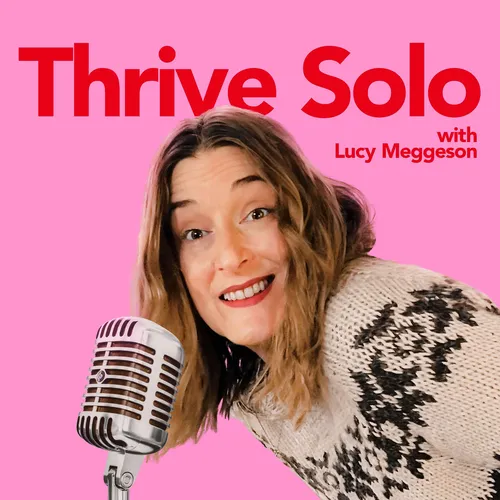The One Where I Talk To Psychotherapist, Lisa Bruton
- Author
- Lucy Meggeson
- Published
- Tue 28 Feb 2023
- Episode Link
- None
***TRIGGER WARNING***
Towards the end of this episode, I talk about a very serious rape case, including some of the details of what happened. If you are in any way triggered by sexual assault, please stop the episode at 43" 58'.
In this week's episode, I talk to psychotherapist, Lisa Bruton.
Lisa is a psychotherapist, trainer and guest tutor at Oxford University. With over 13 years experience in the field of psychotherapy, she is passionate about the potential of therapy to help people feel differently about their lives. At its’ best, Lisa believes that therapy is a tool that helps people relate to all parts of themselves, including as social beings with inherited norms about how to live, how to be etc. With women, Lisa has found that this can result in shame and anger that life hasn’t turned out the way they hoped.
With her clients, Lisa works to identify with women what some of their inherited dictates are, so that they gain some freedom from those beliefs, and subsequently engage with their lives with all their unique challenges and opportunities. She loves her work, and wants to help change the stereotype of therapy being a place of self-centredness and inaction, and rather see it as a place for real self-enquiry and authentic and grateful engagement with life.
In this conversation, Lisa and I talk about her work as a psychotherapist with single and childless women; the internal narratives that impact the way women feel about themselves; how single women can sometimes feel as though they haven’t been ‘chosen’; and the concept of ’social parenting’ as a way to have meaningful contact with children.
We also discuss the grief that many women experience when they don’t end up having children; the importance of being mindful of what you’re consuming when going through grief around not having a baby, and how you can choose to not participate in e.g. social media; and the idea of shame, how it is felt in the body, and how the antidote to shame is contact and community.
Our conversation also includes how negative feelings around being single are often more to do with missing regular contact than with actually wanting a relationship; how being alone is very different to the internal state of loneliness, and how the difference is whether it’s chosen or not; how the sense of failure that some women feel at being alone is often wrapped up in feelings of anger about life not having turned out the way they expected; and how important it is to forgive ourselves and understand that we’re not si
- Pre-Order my book, SHINY HAPPY SINGLES (UK) / THRIVE SOLO (US & Canada) at: https://www.lucymeggeson.com/book
- Download my FREE PDF 'The Top 10 Answers To The Most Irritating Questions That Single People Get Asked On The Regular...& How To (Devilishly) Respond'? Go to: https://www.lucymeggeson.com/questions
- Join the waitlist for my membership, Thrive Solo: https://www.lucymeggeson.com/thrivesolo
- Check out my YouTube Channel: https://www.youtube.com/@thrivesolowithlucymeggeson
- Interested in my 1-1 Coaching? Work with me HERE: https://www.lucymeggeson.com/workwithme
- Join my private Facebook Group: https://www.facebook.com/groups/1870817913309222/?ref=share
- Follow me on Instagram: https://www.instagram.com/thrivesolowithlucymeggeson/
- Email me: [email protected]
And thank you so much for listening!
